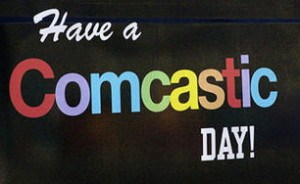On Tuesday, Federal Communications Commission Chairman Julius Genachowski said that he generally supports data caps and tiered broadband pricing plans. The chairman’s comments came during an interview at the Cable Show with former FCC Chairman Michael Powell, now the top lobbyist with the National Cable and Telecommunications Association.
Genachowski has remained consistent in his cautious support for “industry innovation” that includes usage-based pricing, with a caveat providers should not exploit that at the expense of consumers. But consumer groups like Free Press already believe usage caps, particularly on wired broadband services, are already bad for consumers, exploit a marketplace duopoly, and are worthy of investigation by the agency.
“All the evidence shows that caps on wired broadband platforms like cable make no sense. They don’t affect network congestion, even in the rare instances where congestion actually exists on these systems,” says Free Press policy director Matt Wood. “Cable companies use them to penalize their subscribers and discourage them from using innovative services that compete with cable TV.”
Free Press reminded Genachowski of Comcast’s recent actions which exempted its own video content from usage caps, while leaving them in place for competitors.
“Comcast’s recent actions show both the harms of these caps and the lack of any legitimate reason for them,” noted Wood. “[Now] Comcast changed course and suspended caps temporarily in all but a few markets — but promised to start overcharging any users there who exceeded these arbitrary limits.”
“The FCC has turned a blind eye to this competition problem. If it wants to see experimentation in pricing that actually benefits consumers, we need a competition policy that creates more experimenters.”


 Subscribe
Subscribe




